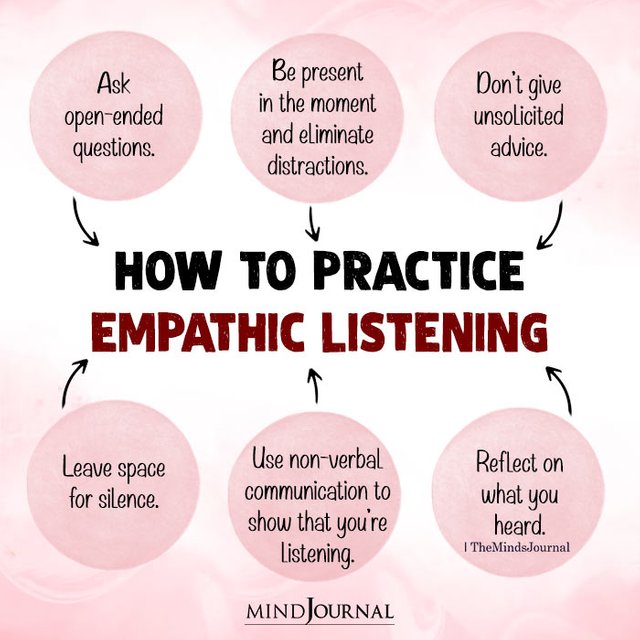Exploring the Power of Emotional Connection

In the realm of human emotions, two fascinating phenomena stand out: emotional contagion and empathy. Both concepts delve into the interconnectedness of individuals and highlight the profound impact emotions can have on our well-being and social interactions. Emotional contagion refers to the tendency to "catch" and mirror the emotions of those around us, while empathy encompasses the ability to understand and share the feelings of others. This article aims to explore these concepts in depth, unraveling their significance in personal relationships, social dynamics, and overall emotional well-being.
Emotional Contagion
Emotional contagion is an innate human phenomenon through which emotions are transferred from one person to another. It occurs automatically and unconsciously, often without individuals realizing it. Think about a time when you walked into a room and instantly felt the atmosphere shift, absorbing the prevailing emotions of the people present. This contagious nature of emotions arises from our evolutionary need for social bonding and cooperation.
Emotional contagion operates through various mechanisms that facilitate the transfer of emotions from one person to another. These mechanisms primarily involve nonverbal communication, including mimicry, facial expressions, vocal tones, and body language.
Mechanisms of Emotional Contagion:
Several mechanisms drive emotional contagion, including mimicry, facial expressions, vocal tones, and body language. Humans are highly attuned to nonverbal cues, allowing us to mimic and mirror the emotional states of others. This mirroring process activates similar neural pathways, creating a shared emotional experience. It explains why we often feel happier when surrounded by joyful people or experience sadness when in the company of those who are grieving.
Positive and Negative Effects:
Emotional contagion can have both positive and negative effects on individuals and their relationships. On the positive side, it fosters social cohesion, empathy, and altruism. Sharing positive emotions enhances social bonds and promotes a sense of belonging. However, emotional contagion can also perpetuate negative emotions, leading to emotional exhaustion, stress, and even depression. It highlights the importance of emotional regulation and creating a supportive emotional environment.

It is important to note that these mechanisms of emotional contagion operate at an unconscious level, often outside of our awareness. We are wired to pick up on and mirror the emotional cues of those around us, which can significantly impact our own emotional experiences. Recognizing these mechanisms can help us better understand the power of emotional contagion and its influence on our emotional well-being and social interactions.
Empathy
Empathy encompasses the ability to understand and share the emotions of others. It involves putting oneself in someone else's shoes, perceiving their perspective, and resonating with their feelings. Empathy plays a pivotal role in human interactions, contributing to the formation of deep connections, compassion, and pro-social behavior.
It is a multifaceted concept that involves the ability to understand and share the emotions of others. It goes beyond simply recognizing someone else's feelings and extends to experiencing and resonating with those emotions on a deeper level. Empathy encompasses cognitive, emotional, and compassionate dimensions, each contributing to a comprehensive understanding of others' experiences.
Types of Empathy:
Empathy can be categorized into three main types: cognitive empathy, emotional empathy, and compassionate empathy. Cognitive empathy refers to the capacity to understand and intellectually grasp another person's emotions. Emotional empathy involves sharing and resonating with another person's emotions, experiencing them vicariously. Compassionate empathy goes a step further, combining understanding and shared emotions with the desire to alleviate suffering and provide support.
The Importance of Empathy:
Empathy holds immense significance in various aspects of life, including personal relationships, healthcare, and leadership. In personal relationships, empathy builds trust, fosters emotional intimacy, and enhances communication. In healthcare settings, empathetic care improves patient satisfaction, treatment adherence, and overall well-being. Empathy is also crucial in leadership, as it enables leaders to understand and respond to the needs of their team members effectively.

Empathy provides vital emotional support to those going through difficult times. By empathizing with someone's struggles and demonstrating understanding, we create a safe space for them to express their emotions. Offering empathetic support can alleviate feelings of loneliness, isolation, and distress, fostering resilience and well-being.
The Interplay between Emotional Contagion and Empathy
Emotional contagion and empathy are interconnected and often influence each other. While emotional contagion can heighten empathy by facilitating the shared experience of emotions, empathy enables individuals to understand and respond empathetically to the emotions they "catch" from others. This interplay plays a vital role in emotional regulation and social dynamics.
Emotional Contagion's Impact on Empathy:
Experiencing emotional contagion can increase empathetic responses as it helps individuals understand the emotions of others. When we mirror someone's emotions, it becomes easier to relate to their experience and offer support or comfort. Emotional contagion can be a catalyst for empathy, fostering compassion and prosocial behavior.
Empathy's Influence on Emotional Contagion:
Empathy, on the other hand, can modulate the impact of emotional contagion. By recognizing and understanding the emotions of others, individuals can regulate their own emotional responses and create a positive emotional environment. Empathy allows for greater emotional awareness, helping individuals differentiate between their own emotions and those absorbed through emotional contagion.
Conclusion
Emotional contagion and empathy are two remarkable aspects of human nature that highlight our innate capacity for emotional connection. Understanding the mechanisms and implications of emotional contagion and empathy can empower individuals to navigate their emotions effectively, foster meaningful relationships, and contribute to a more compassionate and empathetic society. By acknowledging and harnessing the power of emotional contagion and empathy, we can create a world where emotional well-being and understanding flourish.

The images used in your post have been taken from an external source, unless you check it.
Visit the following publication if you want to know what Plagiarism of information is considered, spam and Copyright infringement. Abuse Watcher
@xpilar @adeljose
Downvoting a post can decrease pending rewards and make it less visible. Common reasons:
Submit
I recently came across an article discussing the application of empathy skills in negotiations. The article highlights the significance of empathy as a valuable tool for successful communication Cmaconsulting https://cmaconsulting.com.au/examples-of-empathy-skills-in-negotiation/ in various aspects of life, including negotiations. It delves into how understanding the emotions and perspectives of others can lead to more productive and mutually beneficial outcomes during discussions and negotiations.
Downvoting a post can decrease pending rewards and make it less visible. Common reasons:
Submit